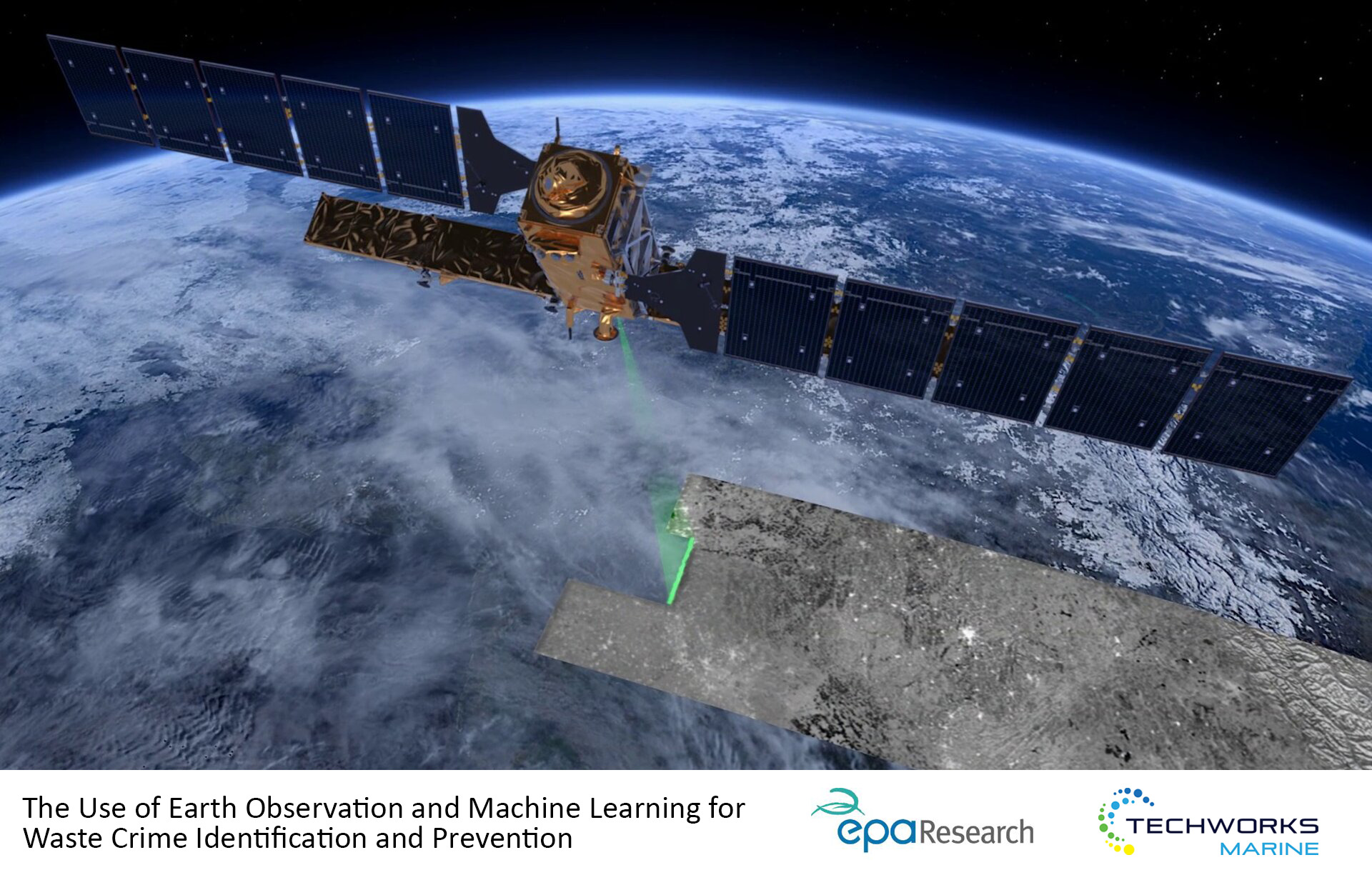Funded under the EPA Research Programme 2021-2030 and co-funded by TechWorks Marine, this project will assess the applicability of Earth Observation (EO) technologies to the problem of detecting, preventing and prosecuting waste crime and runs from March 2022 to March 2023.
Waste crime costs millions in annual tax revenues, damages the environment, and poses a risk to human and animal health. Illegal waste presents governments with a wide range of risks that have prompted demands for cost-effective, efficient monitoring and mapping solutions to support improved management outcomes.
EO technologies, such as satellites and drones, have the potential to improve governments’ ability to monitor, detect, and prosecute waste crimes. These technologies can be used to monitor and map activities such as illegal dumping, illegal burning of waste, non-compliance at licenced facilities across the industrial, food processing and agricultural sectors, and the extent of illegal extraction of peat in bogland areas. Data from satellites and drones can provide critical information to inform targeted active surveillance operations and cost-effective remediation activities.
TechWorks Marine will undertake a comprehensive review of the current capabilities and applications of orbital satellite sensors (optical, thermal, and radar), current drone technology, and machine learning techniques in the area of waste crime detection and enforcement. The work will critically analyse and evaluate existing remote sensing instruments, tools, and methods used to monitor and map waste crime in Ireland and other jurisdictions around the world and assess their applicability to waste crime in Ireland. Opportunities for future research will also be identified, considering recent advances in remote sensing technologies.
If you would like more information on this project, please get in touch with us via phone (+353 1 2365990) or email.
DISCLAIMER: Although every effort has been made to ensure the accuracy of the material contained in this post, complete accuracy cannot be guaranteed. Neither the Environmental Protection Agency nor the authors accept any responsibility whatsoever for loss or damage occasioned or claimed to have been occasioned, in part or in full, as a consequence of any person acting or refraining from acting, as a result of a matter contained in this post.
This project is funded under the EPA Research Programme 2021-2030 and co-funded by TechWorks Marine . The EPA Research Programme is a Government of Ireland initiative funded by the Department of the Environment, Climate and Communications.



